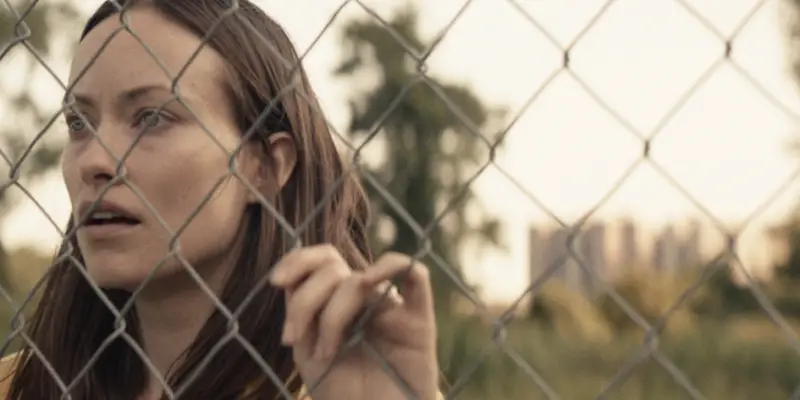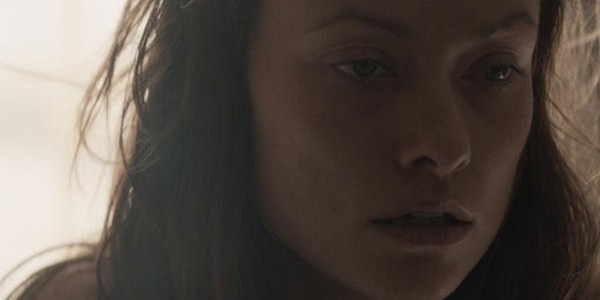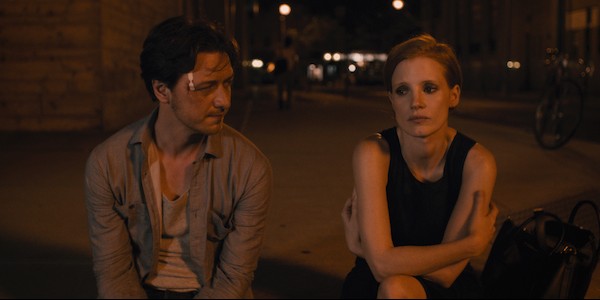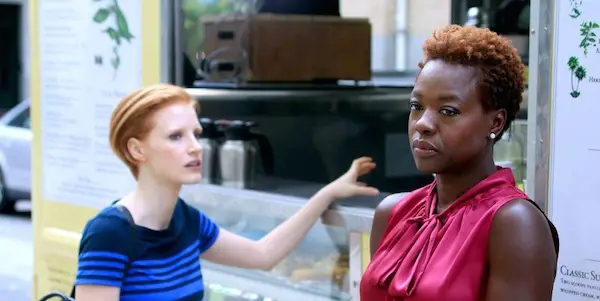On Grief: MEADOWLAND And THE DISAPPEARANCE OF ELEANOR RIGBY

Lauren has worked in the entertainment industry in Los Angeles…
Films deal with universal emotions such as love, hate, or sadness. Some deal specifically with grief, whether it be a lover moving on, a friendship ending, or the loss of a parent.
Two films in recent years, The Disappearance of Eleanor Rigby (2014) and Meadowland (2015), have dealt with the loss of a young child and the effect on the parents. However, both films examine this particular grief in different ways.
Meadowland is the first film directed by Reed Morano, who has been the Director of Photography on many critically acclaimed films including Frozen River, The Skeleton Twins, and Kill Your Darlings, as well as HBO series Looking and Vinyl. Morano also served as the cinematographer on Meadowland. The film premiered at the Tribeca Film Festival in April 2015.
The Disappearance of Eleanor Rigby is also the first feature for filmmaker Ned Benson. Previously, Benson had directed three shorts. Originally, Eleanor Rigby was shot as two films, telling his and her sides of the story, aptly named Him and Her. Benson then edited the two films into one movie, The Disappearance of Eleanor Rigby: Them, which premiered at the 2014 Cannes Film Festival.
Four Reactions to Grief
In Meadowland, Sarah (Olivia Wilde) and Phil (Luke Wilson) are on a road trip with their son Jessie. They stop at a gas station and in the time it takes for him to use the restroom, Jessie disappears. Sarah and Phil search the immediate area for him without any luck. Months later, they are still dealing with the emotional fallout. A New York cop, Phil tries to deal with his own personal questions about his son’s disappearance with logic and practicality. He carries “missing” posters for his son in his squad car and joins a support group for parents dealing with the loss of a child.

Sarah’s reaction is controlled much more by her emotions. She takes drugs to combat the hopelessness of the loss – Phil cites she’s on lithium – but then she decides to stop without telling her husband. She forms attachments to certain people. Sarah is a teacher and she starts seeing a boy at her school, Adam, who struggles with fitting in and often gets in trouble.
At first, she becomes obsessed with his foster parents, convinced they are involved in some kidnapping ring and are responsible for her son’s own disappearance. After finding out Adam has been diagnosed with Asperger’s, she tries to befriend him and earn his trust.
In The Disappearance of Eleanor Rigby, the details of the loss of Conor (James McAvoy) and Eleanor’s (Jessica Chastain) child are never spelled out, but from the references throughout the three films, the audience discovers their son was very young, still an infant, when he died. More than six months after his death, Elle is still grieving and has fallen into a deep depression. Conor doesn’t seem to be suffering any ill effects, other than trying to figure out what his wife wants.
The film draws a nice parallel between Sarah and Phil’s breakdowns. Phil’s firm rooting in logic begins to slip and he displays a loss of morals towards one of the other parents in his therapy group. But Sarah’s breakdown goes way further. Her grip on her mental state loosens and she seems to operate in an alternate reality. She refuses to participate in the investigation on their son’s whereabouts, telling Phil she believes Jessie is alive. She begins to self-harm, she sleeps with another man, and ultimately, becomes what she despises.
All the Lonely People

Whereas Meadowland attempts to create a parallel between Sarah and Phil and their grief, the Him and Her films of Rigby go in different directions. Conor never outwardly deals with the loss. Instead, he throws himself into work, trying to keep his new restaurant afloat. In fact, Conor’s main purpose seems to be to chase Elle. His character does not seem to have any other journey except to win his wife back, which he goes about in frankly, kind of annoying ways, like stalking her and showing up in her class.
In Her, Eleanor tries to commit suicide and then failing that, attempts to “find herself”. She moves back in with her parents, where thankfully, her sister and her son are also living. Not sure of what else to do, she takes up her mother’s idea of taking some classes and with her father’s university connections, returns to school, where she meets the blunt but insightful Professor Friedman (Viola Davis).
Friedman becomes a friend and sounding board for Elle and encourages her to pursue a graduate thesis Elle gave up on before she had her son. When she decides she needs to get out of New York, Friedman helps to set Elle up with a fellowship in Paris so she can finish her abandoned thesis.

It’s hard to review Rigby–especially when comparing it to another film–without commenting on Benson’s decision to create the film in three parts. Them is the most uneven of the three, but since Elle is the title character, it might have been smart of Benson to stick with the story purely from her point of view, rather than over-saturating the audience. The three part POV structure took me out of the story and instead wondering why Benson’s vision was too precious to endure some serious editing.
Seeing Elephants in the Conclusion
One of the symbols of Meadowland is an elephant. When Sarah is mourning their son, she is able to look at pictures of elephants who have been killed by poachers without showing disgust or emotion. Adam is obsessed with elephants and at the dramatic peak of the film, Adam and Sarah encounter a real one. But it’s a bit unclear what elephants are supposed to symbolize and betrays the unevenness of the film. Meadowland benefits from beautiful cinematography and generally strong performances, but something doesn’t quite elevate it to the next level of becoming a must see indie.
Whereas Phil and Sarah are still caught up in the trauma and uncertainty of Jessie’s disappearance, Conor and Elle have had time to deal with their child’s death and try to move on and figure out who they are as individuals, outside the shared identity of being parents. At the end of Rigby, Elle returns to New York and is following Conor home from work, but the audience never finds out what happens to the couple. Maybe Elle is happy with her new life in Paris and is simply trying to find Conor to make amends. Maybe their paths lead them back to each other.
Meadowland handles the complicated subject of grief well, but the film has moments which are overwrought, whereas Rigby is immensely realistic and raw, particularly Chastain‘s performance.
What do you think about Meadowland? Do you think The Disappearance of Eleanor Rigby needed three versions? What do you think about how grief is portrayed in movies?
Does content like this matter to you?
Become a Member and support film journalism. Unlock access to all of Film Inquiry`s great articles. Join a community of like-minded readers who are passionate about cinema - get access to our private members Network, give back to independent filmmakers, and more.
Lauren has worked in the entertainment industry in Los Angeles and New York. She holds a master's degree in film & TV from Syracuse University. She currently writes a weekly series on her blog, 52 Weeks of Directors, focusing on a female filmmaker each week.













